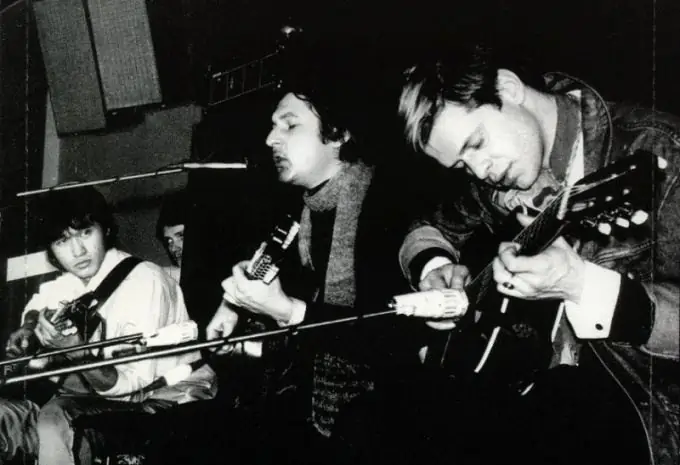- Author Antonio Harrison harrison@cultureoeuvre.com.
- Public 2023-12-16 07:44.
- Last modified 2025-01-22 21:44.
Russian rock is a special direction in rock music, which has acquired a completely different look from the rock of all other countries. Perhaps the reason was some isolation of the performers from the rest of the musical world, or maybe the national mentality - but in the end, Russian rock is the way it is. What are its features?

The main thing is the texts
The phenomenon of Russian rock appeared in the USSR, at the same time, they never say "Soviet rock", although such a concept as "Soviet stage" quite successfully exists. The fact is that Russian rock from the very beginning was antagonistic to the existing government. The concerts were held in secret, and the recordings were rewritten on home tape recorders. It was easier to get hold of a rare "homemade" cassette than to buy an album of your favorite artist in the store.
Russian rock was strongly influenced by Western rock music, however, it did not fully define its appearance. The main differences are that in Russian rock the main role is played by the text, and not the music at all. We can say that Russian rock has little in common with rock music, as it is usually understood. The lyrics tell about Russian reality, these are high-quality lyrics, and they are very poetic. There is practically no sex or frivolity inherent in Western rockers.
The only thing that unites Russian rock with the world is the general idea of protest. Against government, totalitarianism, war, injustice, social problems … The list is long, and every musician or band gravitates towards their favorite themes. Also a popular topic for expression in Russian rock is the inner world of the hero.
We can say that in the field of text, Russian rock inherits not Western models, but Russian poetry, only this happens in a depressive environment, where musicians are forced to hide underground. They do not dream of popularity, the main thing for them is to sincerely express their position. All this leaves an imprint on the very essence of Russian rock. That is why many music lovers declare that today there is no more Russian rock, because the conditions that determined it are gone. Contemporary Russian rock performers are closer to Western rock than to Russian. This does not mean that Russian rock is worse or better than western rock, it just is different.
Popularity and performers
It is interesting to note that "real" Russian rock is listened to almost exclusively in Russia. It has always been this way: both during the Soviet Union and after it. The fact is that from a musical point of view, it really does not always represent something interesting. And only this very soul can understand the texts containing the contradictions and peculiarities of the “mysterious Russian soul”. Abroad, Russian rock fans are mostly immigrants.
The most famous and classical performers in Russian rock include Viktor Tsoi, the DDT group, Mike Naumenko, Egor Letov, Yanka Diaghileva, Boris Grebenshchikov, the Alisa group, Andrey Makarevich and others. Some generations in Russia literally grew up on this music, so Russian rock is often perceived as a special phenomenon of Russian culture, which has become too deeply ingrained in people, just like, for example, the poetry of the Silver Age.






